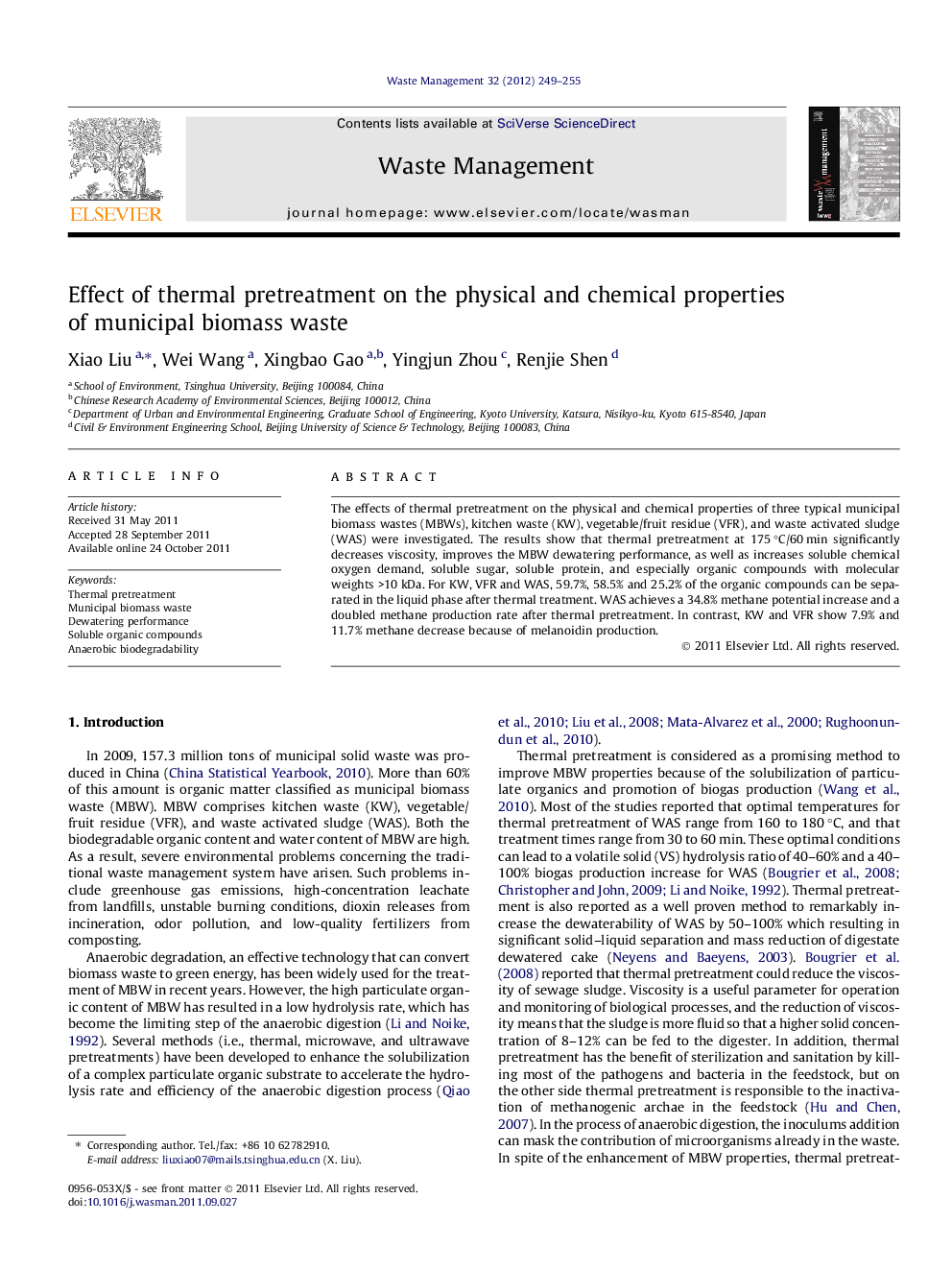| Article ID | Journal | Published Year | Pages | File Type |
|---|---|---|---|---|
| 4472150 | Waste Management | 2012 | 7 Pages |
The effects of thermal pretreatment on the physical and chemical properties of three typical municipal biomass wastes (MBWs), kitchen waste (KW), vegetable/fruit residue (VFR), and waste activated sludge (WAS) were investigated. The results show that thermal pretreatment at 175 °C/60 min significantly decreases viscosity, improves the MBW dewatering performance, as well as increases soluble chemical oxygen demand, soluble sugar, soluble protein, and especially organic compounds with molecular weights >10 kDa. For KW, VFR and WAS, 59.7%, 58.5% and 25.2% of the organic compounds can be separated in the liquid phase after thermal treatment. WAS achieves a 34.8% methane potential increase and a doubled methane production rate after thermal pretreatment. In contrast, KW and VFR show 7.9% and 11.7% methane decrease because of melanoidin production.
► Thermal pretreatment (TP) of three municipal biomass wastes was examined. ► TP significantly decreases viscosity and improves dewatering performance. ► TP increases soluble organic compounds, especially with molecular weights >10 kDa. ► Waste activated sludge achieves a 34.8% methane increase after TP. ► Melanoidins produced during TP have negative effect on methane production.
